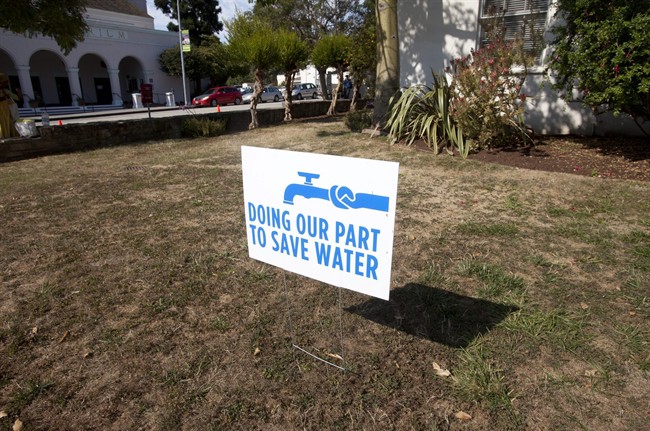REGINA – Resisting the urge to water the lawn or do an extra load of laundry is something many Reginans aren’t used to.

It was nothing new to Luke Nichols, though – a veteran of sorts, in conserving water after moving to Canada eight years ago from Perth, Australia, where drought is practically a way of life.
“It’s normal to time your showers and have two-to-three minute showers. It’s a good way to be efficient,” Nichols said. “Some people go to the extent of turning the shower off while they’re washing their hair.”
Nichols says many people use buckets in the shower to capture the “greywater” (gently used wastewater) and later use it in the yard for watering grass or plants.
“I was always conserving, so it wasn’t really a big deal to cut down my usage.”
The method from overseas is still a little foreign to Regina, where water conservation has been top of mind since an advisory was issued on May 25.
“I was always conserving, so it wasn’t really a big deal to cut down my usage,” he said.

Get breaking National news
Extreme cases
It’s time more Canadians take note of water conservation efforts around the world, says Emma Lui, a water campaigner for The Council of Canadians.
Even though Regina’s water woes were caused by a treatment issue, Lui suggests it may not be long until there are mandatory water restrictions similar to those faced in California, the state dealing with one of its most severe droughts on record.

“I think sometimes when people go through crisis, that’s what wakes them up,” she said. “With an extreme case of California going through drought and recently mandatory restrictions were put in place, those should have been put in place a long time ago.”
Charging more to turn on the tap may not be the answer; Lui says it could create a mentality of people paying to use as much water as they feel like.
‘Staged return to normal’
As Regina slowly returns to normal water usage, residents are still asked to be conscious of how much they use. The city offered the following tips:
As committed stewards of smart water choices, residents are still encouraged to practice good water conservation measures, including running full loads in washing machines and dishwashers and not using water to wash down driveways and other hard surfaces. There will always be common sense exceptions to these measures, but these practices reduce household utility bills and are good for the environment.

Comments
Want to discuss? Please read our Commenting Policy first.